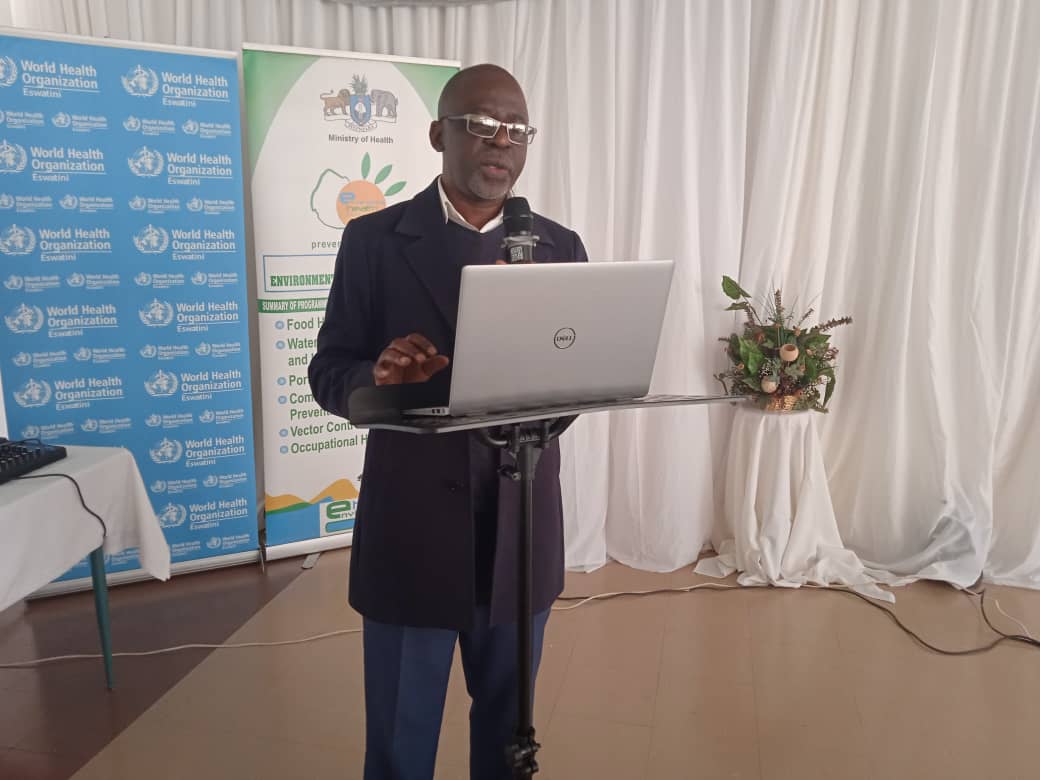By Mbono Mdluli
MBABANE – The University of Eswatini (UNESWA) has reinforced its commitment to producing graduates capable of improving food safety standards across the nation.
This declaration was made by UNESWA Vice Chancellor Professor Justice Thwala during the World Food Safety Day commemoration held on 19 June 2025 at the university’s Mbabane Campus, under the theme “Food Safety: Science in Action.” The World Food Safety Day is originally commemorated on June 7 each year.
The event, organised by the Ministry of Health with support from the World Health Organisation (WHO) Eswatini, highlighted several critical challenges facing both global and local food safety:
Global and African Context
According to WHO data, approximately 600 million people worldwide suffer from foodborne illnesses annually, resulting in 420,000 deaths, including 125,000 children under five
The African continent bears a disproportionate burden of these challenges, with unsafe food particularly affecting vulnerable communities due to limited infrastructure and regulation

Eswatini’s Food Safety Challenges
Professor Thwala highlighted several pressing issues facing Eswatini:
- 29% of the population (approximately 304,000 people) faced severe acute food insecurity during the 2023/24 lean season
- 26% of children under five are stunted
- 30% of local produce is lost post-harvest due to improper handling and storage
- The country’s high HIV prevalence rate of approximately 25% further compounds these challenges
UNESWA’s Strategic Response
The university has implemented several initiatives to address these challenges:
- Academic Programs:
- Practical training through student internships in real-world settings
- Research projects focusing on community issues, including:
- Hygiene assessment among street vendors
- Microbial risk evaluation in restaurants and markets
- Analysis of traditional foods like emahewu
- Faculty Engagement: The Faculties of Agriculture, Consumer Sciences, and Health Sciences are leading efforts in:
- Food microbiology
- Food chemistry
- Food analysis
- Product development
- Food processing
- Food safety
- Professional Partnerships: UNESWA’s academic staff participate in critical national platforms:
- National Codex Committee
- National Laboratory Quality Framework Task Team
- Food Control System Assessment
Future Commitments
Professor Thwala outlined four key areas requiring support:
- Increased investment in research, laboratories, and data systems
- Enhanced education and public awareness on food handling and hygiene
- Strengthened cross-sector and regional partnerships
- Integration of food safety across the food system

The Vice Chancellor emphasized that these commitments align with the university’s mission of excellence in teaching, research, innovation, entrepreneurship, and community engagement for sustainable development. He concluded by stressing that scientific knowledge must be actively applied and shared to create a healthier future for Eswatini.
The university’s approach aligns with global best practices for implementing science-based food safety initiatives, including capacity building, public-private partnerships, and the adoption of international standards
This comprehensive strategy demonstrates UNESWA’s commitment to addressing both immediate and long-term food safety challenges in Eswatini.
Worth noting is that students from UNESWA also undertook a research project to find out if the food that was produced for members of the public was safe. Areas such as KaKhoza in Manzini were used to do the research. Presinting their findings, the students found that there were many challenges that made food to be unsafe.
They stated that that most of the produced food was done in areas that had no clean water. Their findings were also validated by many of the attendees, who found that in the Manzini Bus Rank, raw meat was sold, something that was said to be illegal by local government professionals from Matsapha, who stated that they worked together with their colleagues from Manzini and the challenges they encountered were pretty much the same in almost all the urban areas around the country.
The attendants also called upon municipalities and town councils to also scrutinise the people who sold food in public transport, with an intention of finding out of the food was safely handled before being consumed.



